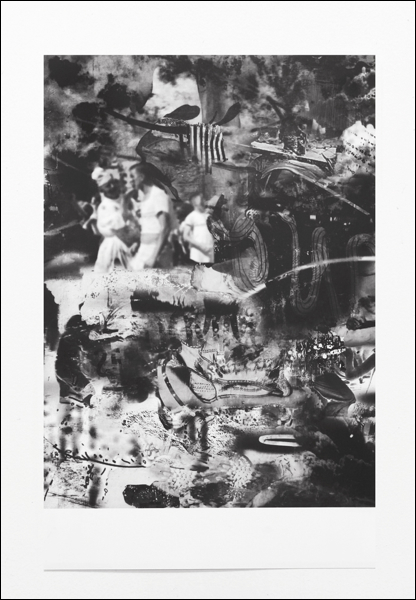Human/Animal : Stathis Gourgouris
 Human/Animal : Stathis Gourgouris Part I. My interest on this occasion is not to test the traditional humanist human-animal distinction, which in recent years has been examined in inventive ways, sometimes under the rubric of so-called posthumanism or animal studies. On the contrary, one might say that I am—for the purposes of argument—abolishing the distinction in the name of raising the possibility of human animality as a political concept. In this respect, I have opted for two idiosyncratic notations. I choose to write human/animal primarily in place of the hyphenated figure that merely qualifies the human as a particular animal. The slash is a tremendously multivalent mark, and its use here draws both on the mathematical notation of division as well as the grammatical notation of a composite pair, which may alternately denote sharing or opposition. What I have in mind will become explicit below, but to begin with, let us say that this notation aims to preserve both the irreducibility of the names “human” and “animal” and yet, simultaneously, designate their undeconstructible relation as each other’s part. While from a certain standpoint a continuity between human and animal is foreclosed, their discontinuous relation makes each a necessary part of the other: if nothing else, because the human is an animal, no matter what, and because the human is like no other animal, no matter what.1 Second, I choose to write human-being, in hyphenated fashion, to denote a condition, not an essence. This too is elaborated below, but, as first instance, let us say that the hyphen destabilizes any notion of human nature as unqualified being. What is registered as “being” in the human cannot be equated with the creature that bears the name, while at the same time nothing in this “being” is ultimately meaningful outside the terrain of “what is human” which, as I argue throughout, is and remains an open question. The gist of this inquiry is to explore the terrain of human animality as a nexus of mutable and contested meanings. Human-being is, in the last instance, a condition of political life, of political animality. I should confess right off hand that I am doubtful as to whether what is here claimed to be political can be contained in a concept. The very significance of the human/animal is that it exceeds conceptual language; it belongs not to the order of philosophy but to the order of poiēsis. The key antecedent to even attempting this sort of gesture is no doubt Aristotle’s peculiar notion of zōon politikon, which cannot be reduced to the other definition that has become predominant: zōon logon ekhon—“the language-bearing animal” (often translated thoughtlessly as “the rational animal”). With this peculiar naming, Aristotle inaugurates what may be called a political anthropology, not in the way this is signified as a subfield in the discipline of anthropology to refer to the culture of political bodies or modes of rule, but as a field of inquiry where physis and nomos come together or permeate each other without ever being reducible to each other in a specific historical nature or general natural law. The precise phrasing of this well-known argument is quite suggestive and worth a second look:
The mobilizing (and yet multivalent) hinge in this phrase is the signifying qualifier physei (“by nature”). Crucial to this signification is the thread of Aristotelian entelechy, whereby the perfectibility (teleion) inherent in a thing is tantamount to its finitude (telos). Equally significant to the qualifier physei is the condition of living being (zēn), whose telos, however, is specifically determined to be the work of human perfectibility: the good life (eu zēn), released, in this case, from its Platonic adherence to the work of philosophy per se. In the trajectory from zēn to eu zēn we see the particular dimension of humanization in whose terms, one may say, Aristotle names the human/animal substance as the surplus of the singular animal that Derrida has famously critiqued. Human-being can come to be considered a condition—and become humanity—because its being is animated by a communal bond. Yet, not just any notion of community or society (Aristotle’s koinōnia signifies either word). A great number of species are demonstrably social animals, although to be strict about it, this is a catachrestic use of the notion “society” because the collectivity of the herd or the hive does not produce (and reproduce itself as and through) phantasmatic institutions. A hive sports a splendorous and highly efficient architecture, but bees do not spend their time in the service of phantasms that will build them rocket ships or extermination camps. In any case, however we are to determine what “society” signifies, one thing is certain: only the society of human-being is political and that’s what determines this animal’s life.3 1. I have in mind Derrida here: There is “no homogeneous continuity between what calls itself man and what he calls animal.” Jacques Derrida, The Animal That Therefore I Am, trans. David Wills (New York: Fordham University Press, 2008), 30. I address Derrida’s argument in the last part of the essay. Here, let us note the disjunction in the operative pronouns. The discontinuity is inherent in this disjunction.↩ 2. Aristotle, Politics, 1252b 30 – 1253a 4.↩ 3. That Aristotle in his rather neglected Historia Animalium adds bees, as well as ants, cranes, and wasps, to the category “political animal” as other animals who act together toward a common purpose should not trouble our analysis here, because he quickly moves further to differentiate the animality of human-being as “more” (mallon) political than any other. Uniqueness is not the issue here, but differentiation (and the grounds for it) is. For an interesting discussion of this specific issue see John Cooper, “Political Animals and Civic Friendship” in Aristotle’s Politics: Critical Essays, ed. Richard Kraut (New York: Rowman & Littlefield, 2005), 65-89.↩ |

